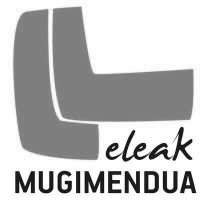"In unfair situations, we always have to take out the smartphone and record"
- The platform No Somos Justicia was born in 2013 with the publication in Spain of the reform of the Penal Code and brings together more than a hundred bands. The reform of the Penal Code, the Law on Citizen Security and the Law on Private Security.

How is the Moorish Law affecting the Spanish State since its adoption in July last year?
We have seen that it has mainly affected comments on social networks and the publication of images. In one case, one of them was denounced for calling the police "stranded" on Facebook and another for calling the "colleague" a police officer.
The Citizen Security Act is being used very arbitrarily by the police, which allows it to interpret the law. The article on disrespect, for example, does not specify what disrespect is. The police have been given more power, their version is above the opinion of the people who have been denounced and then many policemen are taking advantage of that.
Why especially on social media?
You have seen that the virality that is created there can be very strong and you are trying to define the opinion of the network, especially as far as the police are concerned.
The law is also very broad.
It is very broad and at the same time very indeterminate. Read openly, it would not be penalised. Police unions have also pointed out that the police do not have the necessary training to implement the law properly. A law must be precise, and that is quite the opposite. This law should disappear.
"The recommendation is to keep the way of working so far and not be afraid of the consequences that this law may have"
Last week, the Congress of Deputies called for the repeal of the Mordaza Law and the Mordaza Law. Do you see something like this possible?
This process is now difficult, especially when the Government is in office and cannot carry out any legislative initiative. Congress approved a non-legislative proposal, that is, the withdrawal of this law. We must pay close attention to what the Spanish Government is doing.
Once removed, we would return to the Corcuera Law, known in 1992 as the law of the “puncture at the door”.
Indeed, it cannot be said that this law is very respectful of human rights and fundamental rights. We will also have to act against this. Ideally, no administrative law would regulate public space. But, if there is to be, it would be best to do so with a great deal of consensus and, above all, with great respect for the fundamental rights enshrined in our Constitution.
What recommendations do journalists and other citizens make to the Moorish Law?
It is recommended to maintain the way of working so far and not be afraid of the consequences arising from this law. We must continue to fight the law because it violates the fundamental rights of citizenship. Whether it is a journalist or not, in the face of an unfair situation, the citizen always has to take out his SMARTPHONE and record it. In several of the police interventions, the recordings made by citizens have served to refute the police version that has been made. Fines can come, but also for that there are more and more lawyers and attorneys in popular movements, to help them channel them. These resources involve burnout, but we must also use legal channels to deal with laws that do not provide justice.
Furthermore, I would like to make it clear that the Citizen Security Act is not the only Moorish law, the Penal Code and the Anti-Terrorism Pact are also Moorish laws. And these also affect the Private Security Law Reform or the Criminal Prosecution Act, because it sets out how the Criminal Code Reform comes into force. If the Citizen Security Act is suspended, they will also have to do something with others, because they are tied. We do not yet know how this is going to be managed.
Libre-Eleak mugimenduari esker eskuratu ditugu Nafarroako Gobernuaren menpeko Poliziak Mozal Legeari emandako erabileraren datuak. Hala, 2015eko uztailetik eta 2016ko abendura bitartean, Mozal Legea erabiliz, 11.000 isun jarri dituzte Hego Euskal Herriko bi Polizia autonomikoek... [+]
We will examine EAJ and PSOE's proposals for reforming the Citizen's Security Law – the Muzzle Law – in the following lines. As well as the the initiative against it taken by the Eleak-Libre organization.
There have been important results a year after we stood up to the Muzzle Law and the fine which Spanish Government
Joseba Larratxeren ilustrazioak hartu du aste honetako ARGIAren azala. Titularra, Gabriel Arestiri keinu eginez: Inoiz, inola, inon, ez gara isilduko. Asteazkenetik aurrera kioskoetan, eta Argia Jendeak etxean. Proiektua babestu nahi baduzu, hemen aukera.
Axier Lopez ARGIA-ko kazetariari epaiketaren atarian zuen isuna kentzeak Mozal Legea deuseztatzearen alde lan egiten dugun guztioi erakutsi digu posible dela lege injustuei aurre egitea. Kasu honek erakusten digu nola jokatu behar dugun injustiziaren aurrean: lehenik eta behin... [+]
Lehen ere esan genuen. Ez genuela uste, jaso genuen zigorrean iradokitzen zen bezala, inori “baimenik eskatu” behar genionik gure lana egiteko.
The Spanish government, via its Basque Autonomous Community representative Javier de Andres, has desisted from its attempt to fine ARGIA journalist Axier Lopez. As a result of the magazine's appeal against the fine, a trial was to be held in Gasteiz on March 13th. Without... [+]
























